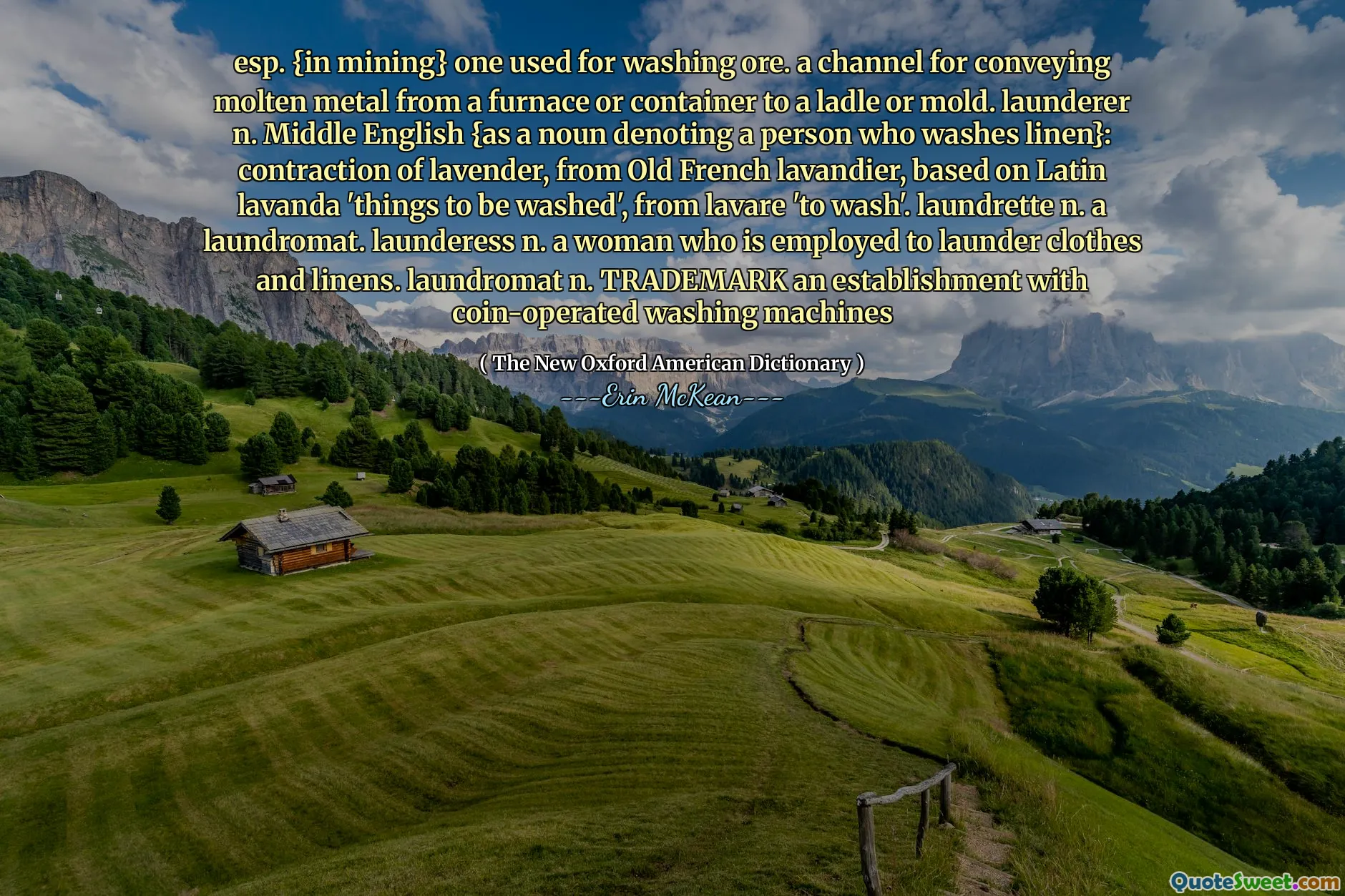
esp. {in mining} one used for washing ore. a channel for conveying molten metal from a furnace or container to a ladle or mold. launderer n. Middle English {as a noun denoting a person who washes linen}: contraction of lavender, from Old French lavandier, based on Latin lavanda 'things to be washed', from lavare 'to wash'. laundrette n. a laundromat. launderess n. a woman who is employed to launder clothes and linens. laundromat n. TRADEMARK an establishment with coin-operated washing machines
This quote intricately explores the evolution of the term 'launder' and its related words, revealing how language adapts over time to encompass new contexts and technologies. The root origins from Latin 'lavare' underscore the fundamental act of washing, which is a bedrock activity across various domains—domestic chores, industrial processes, and even metallurgy. The mention of 'in mining,' such as a channel for conveying molten metal, highlights how basic concepts like washing and conveying can extend into specialized fields, illustrating the versatility of language. Furthermore, the historical perspective tracing back to Middle English reveals how words originally tied to manual labor and cleanliness have expanded into technological and commercial spheres, such as laundromats with coin-operated machines. This evolution underscores the interconnectedness of language, culture, and technology—our words mirror societal advancements and the shifting nature of work and daily life. The detailed etymology enriches understanding by showing how a single root garners new meanings, adapting to the needs of different eras. It also makes us reflect on the importance of language in shaping our perception of mundane activities, elevating a simple task like washing to a tapestry of historical and industrial significance. Such reflections remind us that language is a living record, continually morphing to reflect human ingenuity, cultural exchange, and technological progress—all woven together by the threads of etymology.







